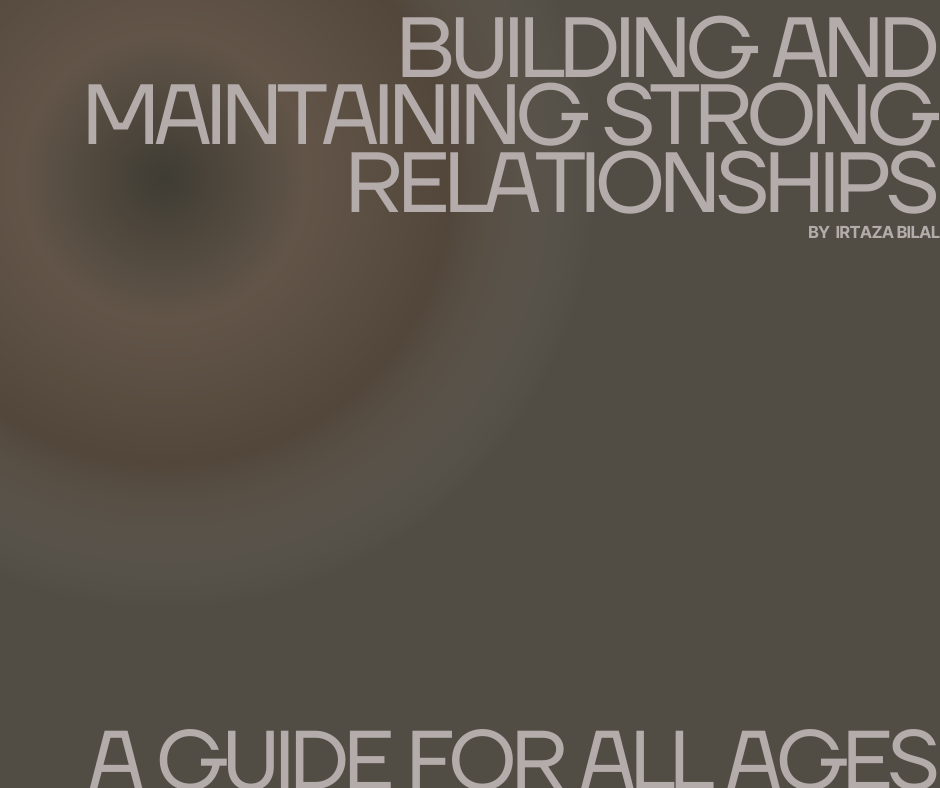Strong and healthy relationships form the foundation of a fulfilling life. Whether it’s with family, friends, romantic partners, or colleagues, nurturing positive connections is essential for our overall well-being. In this blog, we will explore valuable insights and practical tips for building and maintaining strong relationships that can benefit individuals of all ages. Regardless of your stage in life, these principles can help you cultivate meaningful connections and foster a sense of belonging.
- Effective Communication: Communication lies at the heart of any successful relationship. Honing your communication skills is crucial for expressing yourself clearly, actively listening to others, and fostering understanding. Practice open and honest communication, encourage dialogue, and be receptive to different perspectives. By doing so, you create an environment that promotes healthy interactions and deeper connections.
- Cultivating Empathy: Empathy is the ability to understand and share the feelings of others. It allows us to connect on a deeper level and build stronger relationships. Take the time to put yourself in someone else’s shoes, showing compassion and understanding. Practice active listening, validate emotions, and demonstrate empathy by supporting others through both joys and challenges.
- Building Trust: Trust is the cornerstone of any lasting relationship. It takes time and effort to build trust, but it can be easily shattered. Be reliable and consistent, follow through on commitments, and demonstrate integrity. Avoid gossip or betraying confidences, as they erode trust. By being trustworthy, you create a safe space where relationships can thrive.
- Resolving Conflict: Conflict is inevitable in any relationship, but how we handle it determines the outcome. Learn constructive conflict resolution strategies, such as active listening, seeking common ground, and finding win-win solutions. Avoid personal attacks and strive for open, respectful dialogue. By addressing conflicts promptly and effectively, you can strengthen your relationships rather than letting them deteriorate.
- Quality Time and Active Engagement: Investing time and effort into your relationships is vital. Whether it’s spending quality time with loved ones, actively engaging in shared activities, or creating meaningful rituals, these experiences contribute to stronger bonds. Disconnect from technology distractions and be present in the moment. Show genuine interest in others’ lives, celebrate milestones, and support each other’s aspirations.
- Cultivating Mutual Respect: Respect serves as the bedrock of healthy relationships. Treat others with kindness, courtesy, and consideration. Value their opinions, boundaries, and individuality. By fostering an environment of mutual respect, you create a foundation for trust and cooperation.
- Adapting to Change: Relationships evolve over time, and it’s essential to adapt and grow together. Embrace the changes that life brings and navigate them as a team. Communicate openly about your needs and aspirations, allowing space for personal growth while maintaining a strong connection.
Conclusion: Building and maintaining strong relationships is a lifelong endeavor that requires effort, understanding, and dedication. By incorporating effective communication, empathy, trust, conflict resolution, quality time, mutual respect, and adaptability, you can cultivate meaningful connections that enrich your life. Remember that relationships are a two-way street, requiring mutual investment and nurturing. Embrace the journey of connection and enjoy the profound benefits that strong relationships bring to individuals of all ages.

